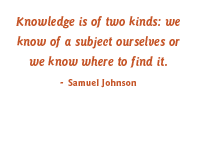| People |
| Philosophy |

 |
|
|
|
 |
<< GO BACK Donor Surveys: What You Donít Know CAN Hurt You
Download/Print: A donor who has consistently supported your organization for years does not respond to your latest appeal. The same donor declines to attend your next fundraiser. Why? Has she stopped supporting your mission? Has she heard negative comments about your agency? Has she had a financial setback and cut back charitable giving? Has she found a different nonprofit to support? Well, there’s only one way to find out why donors give, don’t give, or give for a while and then stop. You need to ask. You Get What You Ask For Knowing why donors give can increase donor satisfaction and loyalty and provide information that stands to dramatically improve donor communication. A business person may give to a homeless shelter because he wants to keep people from sleeping in his doorway and driving away customers. A local mother might support the same shelter out of compassion for homeless children. Understanding your donors’ motivations can only improve communication, and ultimately increase giving. Donor feedback can also help agencies address potential problems before they arise. One nonprofit found that the majority of donors didn’t really understand its mission, but supported it because of their contact with the founder who tirelessly met with local community leaders and groups. This feedback told the development director that donor loyalty was linked to the leader, not the organization—an important distinction. As a result, the agency launched a program to bring key donors to its site for orientation tours. Wowed by their contact with staff and clients, donors started recommending tours of the organization to their friends. A little feedback can go a long way. Donor input is one part of organizational assessment, a growing trend where nonprofits regularly get objective feedback from a range of stakeholders including donors, partners, board members, and volunteers. Keeping tabs on how outsiders perceive an organization helps managers keep fundraising messages, programs, and recruiting strategies tuned to the concerns of their most important constituents. What’s In It for Me? Commercial organizations have mastered the practice of getting customer feedback and acting on it. Amazon.com is a good example—every transaction and every product is rated by customers, and the ratings are transparent to the public. Amazon and its partners always know when they are meeting customers’ expectations. This allows them to constantly adjust their products, services, and messages to make sure they tap consumer desires. Nonprofits would be well served to do the same. Not only can an organization’s performance improve with feedback, the process also builds loyalty with key supporters. Most people want to be asked for input, and to know that their input is valued. Studies show that when a customer is asked for feedback on a product, and gets a response, their loyalty increases. When you ask for honest opinions, and take them seriously, you send a strong message to your supporters that they are partners in achieving your mission, not just sources of revenue. How would a nonprofit go about performing an objective assessment? A solid survey usually requires 12-20 stakeholders—customers, staff, management, supporters, and partners—to volunteer to participate in various surveys. Surveys include a combination of in-person interviews, focus groups, and online questionnaires. The results, both qualitative and quantitative, are consolidated, summarized, and analyzed, and recommendations are made. It is important that the process be anonymous in order to encourage honesty, so it’s a good idea to have a third party solicit and record the input. Power to Change In the end the value of an assessment comes down to this—it’s a lot easier to ask a donor, volunteer, or board member why they support you than it is to ask them why they stopped.
Do you need help getting and responding to donor feedback? NewLevel Group, LLC, can assist you with developing successful surveys, assessment reports, and communications plans. We can be reached at (707) 255-5555 x 109 or info@newlevelgroup.com. |
||
 |
 |
 |